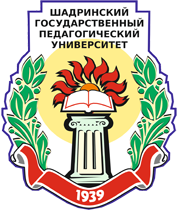Современные тенденции подготовки студентов к преподаванию окружающего мира в начальной школе
Modern tendencies in preparing students for teaching the subject “World around us” in primary school
Аннотация
В статье рассматривается проблема профессиональной подготовки будущих учителей начальных классов к преподаванию предмета окружающий мир. Проанализирована сущность понятия «подготовка». Данный феномен рассмотрен во взаимосвязи с термином «готовность», являющимся целью ключевого понятия. Выделены и обоснованы структурные компоненты готовности студентов (личностный компонент, когнитивный и деятельностный компоненты) к преподаванию окружающего мира в начальной школе. Особое внимание автор уделяет раскрытию содержания компонентов готовности обучающихся к реализации предметной области окружающий мир в начальной школе. Автор подчеркивает, что целью решения рассматриваемой проблемы является формирование у студентов умение осуществлять самодиагностику, которая в последствии, положительно влияет на развитие их самосознания. Именно самодиагностика способствует получению информации о самом себе и служит основой формирования самосознания, которое выражается в становлении его «Я-концепции». У будущих учителей с позитивным самоотношением значительно легче сформировать необходимые компетенции, они открыты для всего нового. Автор подчеркивает, что в первую очередь необходимо сформировать у студентов положительное отношение к себе как личности, а затем на этой основе формировать позитивное отношение к выбранной профессии. В процессе становления когнитивного компонента готовности к преподаванию предмета окружающий мир, по мнению автора, необходимо уделить внимание повышению уровня психолого-педагогической подготовки будущих учителей начальных классов и формированию у них профессионального мастерства. В статье излагаются взгляды на ключевые моменты становления деятельностного компонента готовности будущих учителей начальных классов к преподаванию окружающего мира через овладение методами, формами и технологиями, позволяющими реализовать данную дисциплину на практике.
Abstract: The article deals with the problem of professional training of future primary school teachers to teach the subject “World around us”. The concept "training" is analyzed. This phenomenon is viewed with the term "readiness" which is the purpose of the key concept. The structural components of students' readiness (personal component, cognitive and activity components) for teaching the subject “World around us” in primary school are identified and justified. The author pays special attention to the explaining the content of the components of students ' readiness to realization the subject area of “World around us” in primary school. The author emphasizes that the aim of solving this problem is to develop students ' ability to perform self-diagnosis which subsequently has a positive effect on the development of their self-consciousness. It is self-diagnostics that helps to obtain information about oneself and serves as the basis for the formation of self-consciousness which is expressed in the formation of its "I-concept". It is much easier for future teachers with a positive self-attitude to form the necessary competencies. The author emphasizes that first of all it is necessary to form a positive attitude to students as a person, and then on this basis to form a positive attitude to the chosen profession. In the process of formation of the cognitive component of readiness to teach the subject the world around, according to the author, it is necessary to pay attention to improving the level of psychological and pedagogical training of future primary school teachers and the formation of their professional skills. The article presents views on the key moments of the formation of the activity component of the readiness of future primary school teachers to teach “World around us” through the mastery of methods, forms and technologies that allow realizing this discipline in practice.






